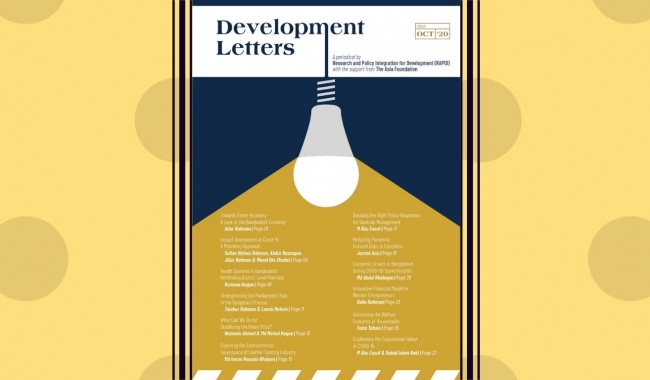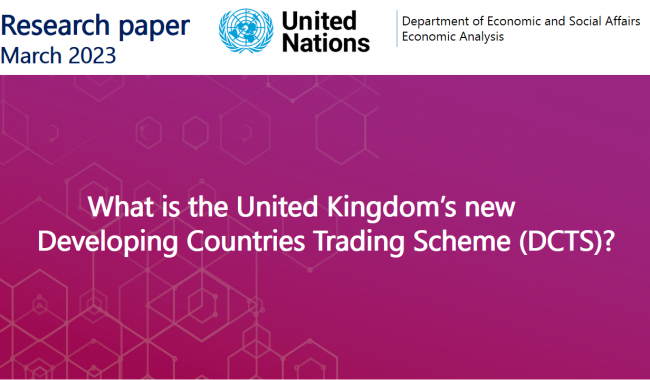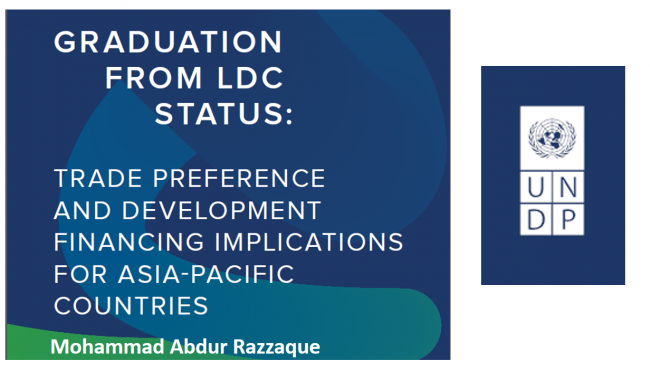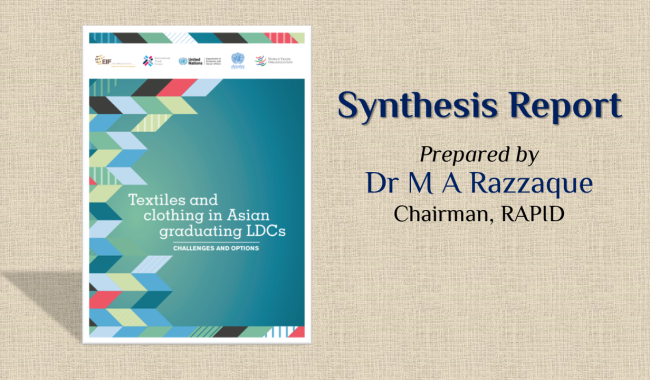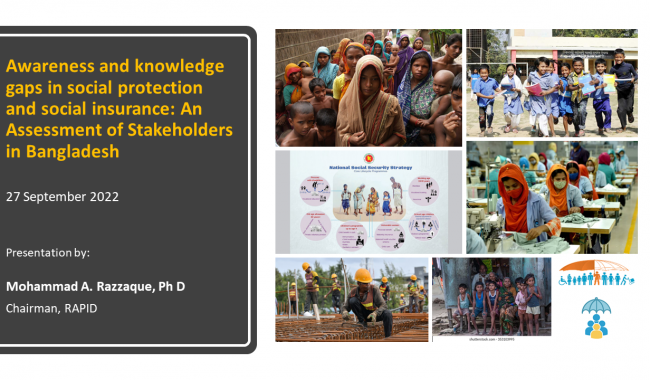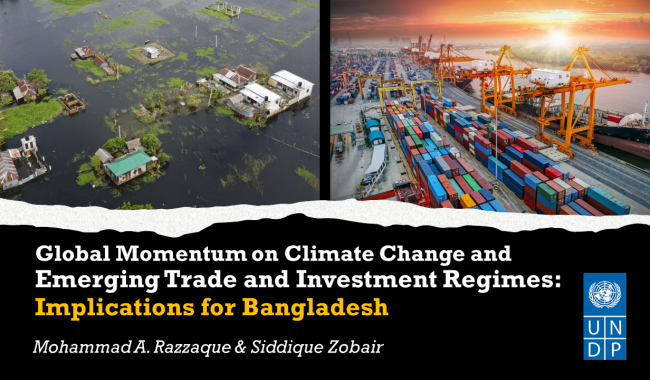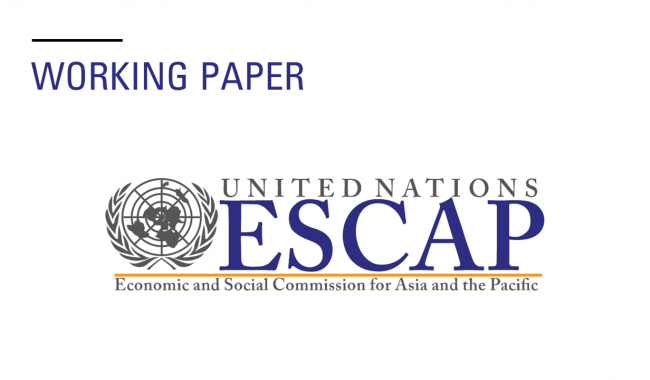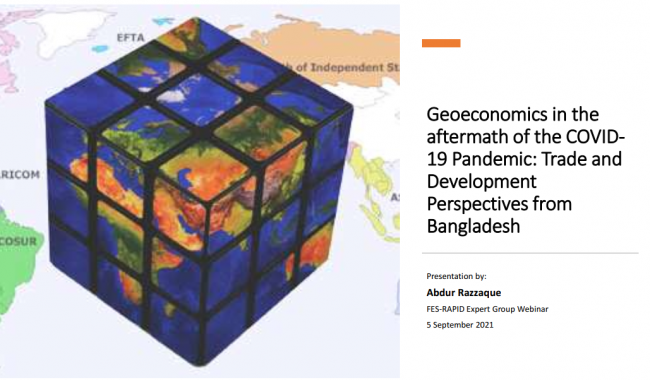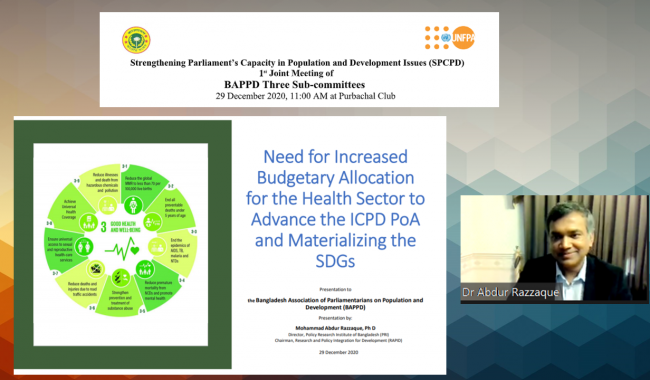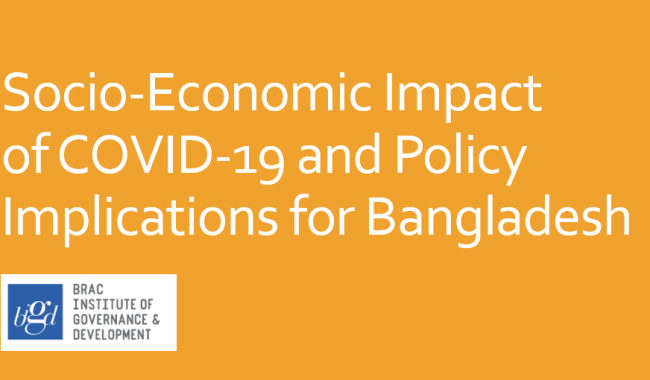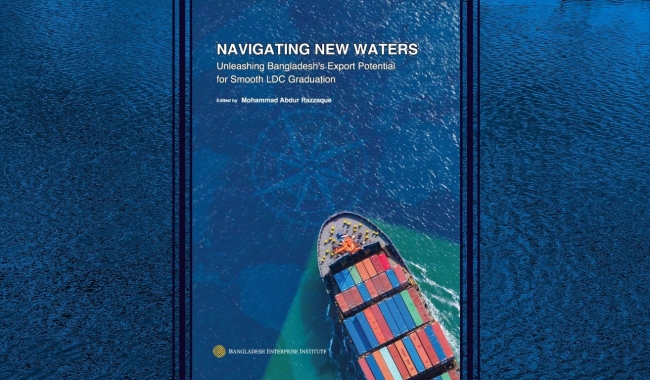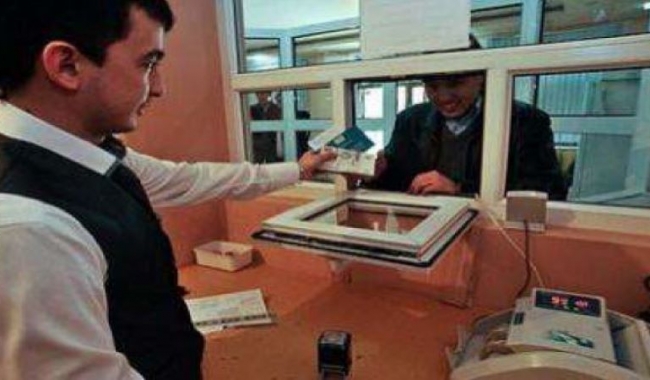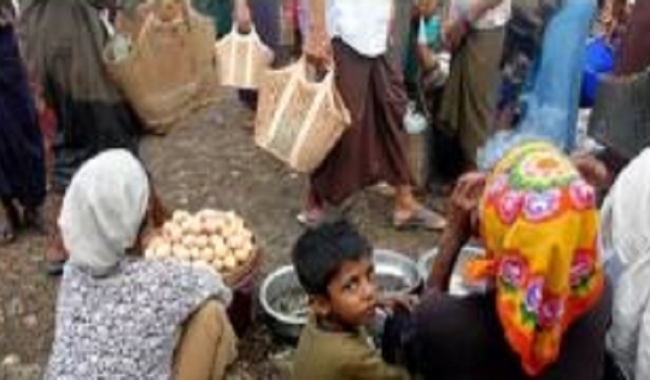A quarterly periodical that focuses on bringing together issues, ideas, and approaches that can be researched, refined, experimented, and investigated further.
How the DCTS differs from the previous United Kingdom GSP system.
Graduating Asia Pacific LDCs may lose access to various international support measures. RAPID Chairman Dr Razzaque makes an assessment on how these LDCs will be impacted.
Read this synthesis report prepared by RAPID Chairman Dr M A Razzaque. This synthesis report draws on thematic and country studies the UN joint study on “The Textile and Clothing Sector in Asian Graduating Least Developed Countries"
RAPID Chairman Dr M A Razzaque conducted a capacity building workshop on awareness gaps in social protection. What gaps are there among the stakeholders? Explore through the slides.
This paper for UNDP, co-authored by RAPID Chairman Dr M A Razzaque, argues that Bangladesh must adapt and adjust fast to the changing global trade and investment regimes to remain a competitive exporter in the global market. Read the executive summary here
Leaf through this research by Dr M A Razzaque on the implications of Geoeconomics in the aftermath of the COVID-19 pandemic.
Mohammad A. Razzaque
RAPID Chairman, Dr Razzaque, with UN ESCAP's Dr Yusuke Tateno undertakes a comprehensive review, providing analysis and insights as the global community prepares for the upcoming Doha Programme of Action for LDCs 2022-2031.
Check out the presentation by Dr M A Razzaque on "Geoeconomics in the Aftermath of the Covid-19 Pandemic: Trade and Development Perspectives from Bangladesh"
Presentation on “Analysis of the National Budget for the Health Sector to Advance the ICPD PoA and Reaching the Agenda 2030 and its SDGs”
December 2020
This policy brief summarises the main findings of a study by the BRAC Institute of Governance and Development (BIGD) that utilises the Global Trade Analysis Project (GTAP) model—a multi-region/multi-country computable general equilibrium framework— to explore Coronavirus-induced disruptions for Bangladesh.
Sultan Hafeez Rahman, BIGD; Abdur Razzaque, RAPID; Jillur Rahman, Jagannath University & RAPID; and Wasel Bin Shadat, BIGD
This book, an outgrowth of a Bangladesh Enterprise Institute (BEI) project, contributes to the policy discourse on LDC graduation by providing objective assessments of some of the major issues that now require urgent policy attention.
Strengthening of the policy measures and the effective implementation of various development programmes will be the pragmatic way forward for Bhutan
Mohammad A. Razzaque
Key impediments to unleash dynamism in Nepal's most potential sectors must be tackled effectively for a smooth graduation and the country's transition to a middle-income country and beyond
Mohammad A. Razzaque
Discontinuing tariff preferences could lead to a potential export loss of more than US$1.6 billion.
Mohammad A. Razzaque and Jillur Rahman
Mohammad A. Razzaque and Jillur Rahman


